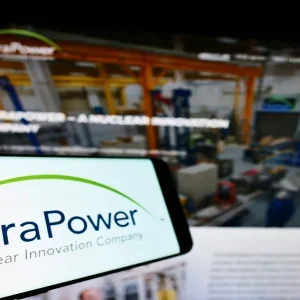
The European Commission (EC) has endorsed 13 Strategic Projects situated outside the European Union (EU) to ensure raw material access and augment local economic development.
This initiative forms part of the Critical Raw Materials Act, effective since May 2024, which seeks to diversify the EU’s supply sources and fortify economic security. The new projects complement an existing roster of 47 Strategic Projects within the EU, unveiled on 25 March 2025.
Collectively, these 60 projects aim to enhance the competitiveness of EU industries, particularly in electromobility, renewable energy, defence, and aerospace.
The newly adopted Strategic Projects are positioned across various countries, including seven within Canada, Greenland, Kazakhstan, Norway, Serbia, Ukraine, and Zambia. These nations have established strategic partnerships with the EU regarding raw materials value chains.
Additional projects are located in Brazil, Madagascar, Malawi, New Caledonia, South Africa, and the UK.
Among these initiatives, 10 focus on key materials vital for electric vehicle batteries and storage solutions, such as lithium, cobalt, manganese, and graphite. Additionally, two projects based in Malawi and South Africa target rare earth elements crucial for manufacturing high-performance magnets used in wind turbines and electric motors.
The remaining projects address materials like copper, tungsten, and boron that serve essential roles across various sectors including automotive and defence.
EC Prosperity and Industrial Strategy Executive Vice-President Stéphane Séjourné said: “Europe needs raw materials to succeed in our industrial and climate ambitions. The EU requires stable, secure and diversified supply chains.
“After the projects announced in the EU, today’s list of 13 Strategic Projects across the world will help to reduce Europe’s dependencies, contribute to our economic security while creating growth, jobs and export opportunities in the countries concerned.”
According to the EC, the selection process for these Strategic Projects involved an independent assessment to verify compliance with criteria set by the Critical Raw Materials Act.
This evaluation considered environmental, social, and governance standards alongside technical feasibility. Projects were required to demonstrate mutual benefits for both the EU and host countries and contribute to enhancing EU supply security through potential agreements with European industries.
The selected projects will receive coordinated assistance facilitated by the EC along with EU Member States and financial institutions. This support will streamline access to funding and establish connections with relevant stakeholders.
The total capital investment required for these external projects is estimated at €5.5bn.
To further support development efforts in third countries where these projects are located, the EC will strengthen cooperative ties through existing strategic partnerships focused on raw materials value chains.






